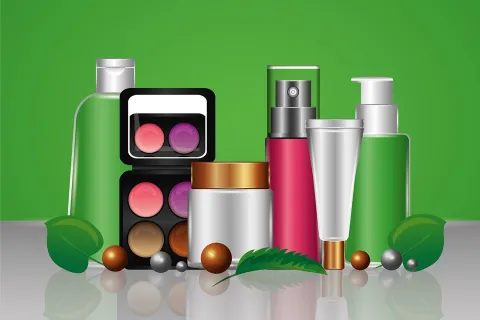
Colombia is a vibrant market for cosmetic products, with a growing consumer base that places a strong emphasis on personal care and beauty. To ensure the quality and safety of cosmetic products sold in the market, Colombia has established a Regulatory framework with specific requirements. In this blog, we shall provide you with a comprehensive overview of cosmetic regulations in Colombia, highlighting the key elements that businesses should be aware of before entering this market.
Registration and Notification
In Colombia, cosmetic products are subject to notification, depending on their risk classification. All cosmetic products require notification with the Instituto Nacional de Vigilancia de Medicamentos y Alimentos (INVIMA) or the Colombian National Food and Drug Surveillance Institute. Also, a specific indicative list of cosmetic products requires the Notificación Sanitaria Obligatoria (NSO) or the Mandatory Sanitary Notification for their commercialization. Businesses should understand the specific requirements and processes associated with cosmetic product notification, including the submission of the necessary documentation.
Labeling Requirements
The Colombian cosmetic regulations stipulate specific labeling requirements to ensure consumer safety and accurate information on products. Labels must include essential details such as a product’s name, ingredients, Instructions for Use (IFU), warnings, precautions, etc. The information should be provided in Spanish and must be clearly visible and legible. Moreover, the labels must comply with Colombian labeling standards, which may specify font sizes, colors, and placement of information.
GMP
To ensure the quality and safety of cosmetic products, Colombia has established a set of Good Manufacturing Practice (GMP) guidelines. GMP guidelines outline the necessary procedures, controls, and measures for quality assurance, which manufacturers must follow throughout the stages of the production, packaging, and storage of cosmetic products. Compliance with GMP ensures that products meet the required standards, thus reducing the risk of contamination or other adverse effects.
Prohibited and Restricted Ingredients
The Colombian cosmetic regulations specify a list of prohibited and restricted ingredients that should not be used in cosmetic formulations. This includes substances that are known to be hazardous or pose potential risks to human health. Companies must carefully review and assess their product formulations to ensure compliance with these regulations. They must stay up to date with the latest changes to the list of prohibited and restricted ingredients to avoid any non-compliance issues.
Market Surveillance and PMS
Colombian authorities actively monitor the cosmetic market to ensure compliance with regulations and protect consumer safety. This includes regular market surveillance activities, such as product sampling and testing. Additionally, companies are responsible for conducting Post-Market Surveillance (PMS), which involves monitoring adverse events or complaints related to their cosmetic products and taking appropriate actions, such as product recalls or corrective measures, if necessary.
In conclusion, cosmetic manufacturers aiming to enter and thrive in the dynamic Colombian market need to carefully navigate the cosmetic regulations in the country. Building strong partnerships with local Regulatory experts can provide them with valuable assistance in meeting Regulatory obligations and successfully tapping into the Colombian cosmetic industry.
While it is crucial to follow the established cosmetic regulations in Colombia, it is also imperative to choose a Regulatory partner like Freyr for guidance.
Consult our experts for comprehensive cosmetic Regulatory support in Colombia!









